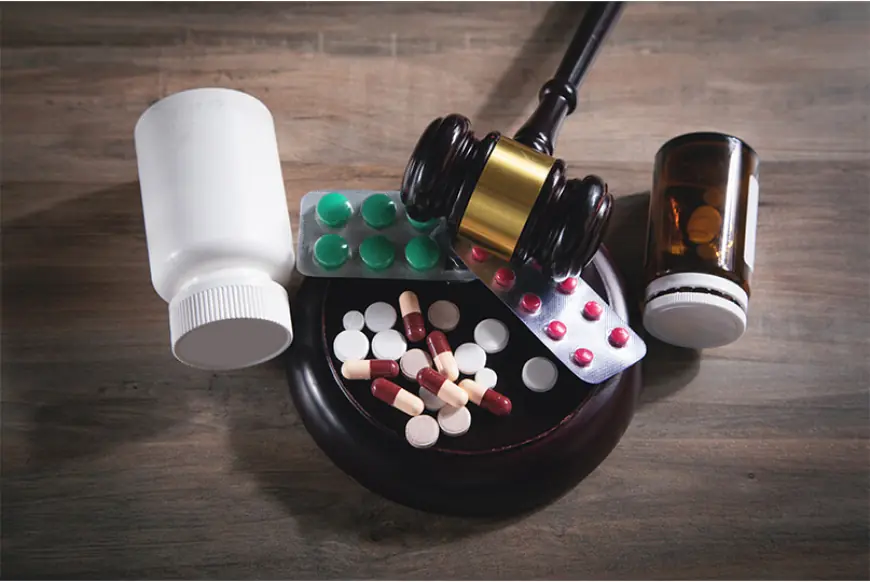Top Challenges in Drugs and Cosmetics Litigations in India
Explore the top challenges in Drugs and Cosmetics Litigations in India. Learn how Mace Corporate Associates helps businesses navigate legal and compliance issues.

In India, the pharmaceutical and cosmetics industries play a vital role in public health, wellness, and consumer safety. The framework regulating these industries is largely governed by the Drugs and Cosmetics Act, 1940, and its associated rules. While the objective of this legislation is to ensure quality, safety, and efficacy, disputes often arise around compliance, licensing, quality testing, and intellectual property. As a result, Drug and Cosmetics Litigations have become a critical legal area affecting companies, regulators, and consumers alike.
At Mace Corporate Associates, we understand how complex and multifaceted these litigations can be. From regulatory hurdles to overlapping laws, pharmaceutical and cosmetic businesses in India face a range of challenges when embroiled in legal disputes. This blog explores the top challenges in Drug and Cosmetics Litigations in India and how businesses can navigate them effectively.
1. Complex Regulatory Framework
One of the foremost challenges in Drugs and Cosmetics Litigations is navigating the multi-layered regulatory framework. The Drugs and Cosmetics Act, 1940, is supplemented by numerous rules, notifications, and state-level guidelines. Different agencies at the central and state levels oversee manufacturing, distribution, and quality control, often creating jurisdictional overlaps.
For example:
-
The Central Drugs Standard Control Organization (CDSCO) regulates new drug approvals and large-scale manufacturing.
-
State drug authorities regulate licensing, inspections, and local compliance.
This multi-tiered system often leads to confusion, delays, and conflicting interpretations in litigations, making it difficult for businesses to defend themselves or ensure uniform compliance.
2. Frequent Amendments and Evolving Standards
India’s pharmaceutical and cosmetic markets are rapidly evolving, with frequent amendments to rules and guidelines. For instance, stricter norms on clinical trials, labeling, and pricing are introduced from time to time.
Businesses often struggle to keep up with these constant changes. When disputes arise, companies may find themselves defending actions that were compliant under older norms but have since become outdated. In court, this creates significant challenges in proving good faith compliance during Drugs and Cosmetics Litigations.
3. Quality Control and Testing Disputes
Quality control is at the heart of most litigations in this sector. Allegations of adulteration, misbranding, or substandard products are common. Such disputes often arise from:
-
Variation in testing methods across labs.
-
Differences in the interpretation of permissible limits for certain ingredients.
-
Procedural lapses in inspections.
Because consumer safety is at stake, regulators take a strict view of such matters, and businesses often face severe penalties, product recalls, and reputational harm, even if non-compliance is minor or unintentional.
4. Intellectual Property and Counterfeit Products
Another major challenge in Drugs and Cosmetics Litigations is the issue of intellectual property rights (IPR). With a growing market, counterfeit drugs and cosmetics often flood the supply chain. These not only pose health risks to consumers but also lead to trademark infringement and brand dilution.
Companies face two-fold challenges:
-
Protecting their IPR through litigation against counterfeiters.
-
Defending themselves if wrongly accused of infringing another entity’s patents, designs, or trademarks.
Such cases can drag on for years and require specialized legal expertise to handle effectively.
5. Overlapping Jurisdictions and Multiple Authorities
Litigations in this sector are not restricted to one forum. Depending on the dispute, cases may be brought before:
-
Civil courts.
-
Consumer dispute forums.
-
Drug inspectors and regulatory tribunals.
-
Intellectual property tribunals.
-
Even the Supreme Court in certain constitutional matters.
This creates a complex web of litigation pathways, often leading to overlapping proceedings and contradictory rulings. Businesses must spend significant time and resources managing cases across multiple jurisdictions simultaneously.
6. Criminal Liability and Stringent Penalties
Unlike many other commercial disputes, Drug and Cosmetics Litigations often carry criminal liability. Company directors, technical staff, and even distributors may face personal liability, including imprisonment, for violations such as manufacturing spurious or adulterated products.
This poses a serious challenge, as even minor procedural lapses can escalate into criminal cases. For businesses, the reputational impact of such charges is often as damaging as the legal consequences.
7. Balancing Innovation with Compliance
The demand for innovative drugs and cosmetic products is ever-growing in India. However, innovation often collides with regulatory hurdles. Clinical trials, safety approvals, and product testing involve extensive procedures that can be subject to litigation.
Companies often find themselves caught between the need to bring new products quickly to market and the risk of falling afoul of regulatory provisions. Litigation in such cases not only delays product launches but also drains financial resources.
8. Consumer Awareness and Rising Litigation
With growing awareness among consumers, complaints and litigations related to cosmetics and drugs have risen sharply. Social media amplifies such issues, creating pressure on regulators to act swiftly.
Consumer-driven cases, particularly under the Consumer Protection Act, are now common. Allegations of misleading advertisements, false claims, and inadequate labeling often lead to prolonged litigations, even if the company has complied with most regulatory norms.
9. International Trade and Compliance Issues
For businesses engaged in export or import, cross-border compliance is a major challenge. Indian companies exporting drugs or cosmetics must comply with both Indian regulations and the destination country’s standards. Non-compliance in either jurisdiction can lead to litigations.
For instance, cases involving the export of substandard medicines have attracted global scrutiny, tarnishing the reputation of Indian manufacturers. Similarly, importers face challenges when foreign products fail to meet India’s strict labeling or approval requirements.
10. Lengthy and Costly Litigation Process
Finally, one of the most pressing challenges in Drugs and Cosmetics Litigations is the slow pace of the Indian judicial system. Cases often drag on for years, involving multiple appeals and procedural delays.
For businesses, this means:
-
High legal expenses.
-
Disruption of operations.
-
Uncertainty in long-term planning.
Even when companies ultimately succeed in defending themselves, the prolonged litigation often results in financial strain and reputational damage.
How Businesses Can Navigate These Challenges
Despite these hurdles, businesses can take proactive steps to minimize risks in Drugs and Cosmetics Litigations:
-
Strengthen Compliance Systems – Regular audits, employee training, and updated documentation can reduce the chances of violations.
-
Engage Legal Experts Early – Firms like Mace Corporate Associates specialize in this field, providing guidance on regulatory compliance, dispute management, and litigation strategy.
-
Invest in Intellectual Property Protection – Registering trademarks, designs, and patents early helps in combating counterfeit products.
-
Maintain Transparency with Regulators – Proactive engagement with authorities can often prevent disputes from escalating.
-
Crisis Management Planning – Preparing for recalls, adverse publicity, and regulatory scrutiny ensures smoother handling of unexpected litigation.
Conclusion
The landscape of Drugs and Cosmetics Litigations in India is complex, dynamic, and often challenging. From regulatory ambiguity to criminal liability and consumer-driven disputes, businesses must navigate a maze of legal and compliance hurdles.
At Mace Corporate Associates, we combine in-depth industry knowledge with legal expertise to help businesses manage these challenges effectively. Whether it’s ensuring compliance, handling disputes, or protecting intellectual property, our team ensures that clients can focus on growth while we manage the legal intricacies.
What's Your Reaction?
 Like
0
Like
0
 Dislike
0
Dislike
0
 Love
0
Love
0
 Funny
0
Funny
0
 Angry
0
Angry
0
 Sad
0
Sad
0
 Wow
0
Wow
0
















































